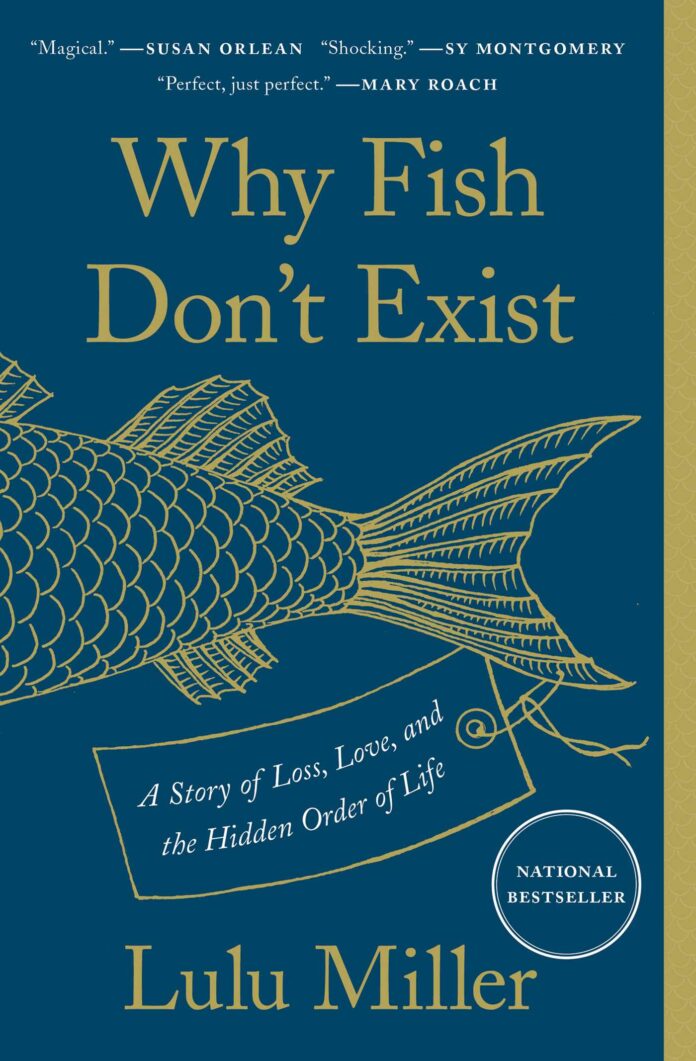Lulu Miller’s 2020 autobiography explores fish and taxonomy as a lesson on life
By RUMA POUDELL — arts@theaggie.org
The story of a girl who’s obsessed with learning about the history of a scholar who was obsessed with fish; “Why Fish Don’t Exist” by Lulu Miller is an autobiographical novel full of existential life crises, moving onto better things and finding meaning in life. Sounds weird? That’s because it is — but in a really cool way.
Miller grew up pondering what it was that ordered the chaotic world we live in. She searched for rules, philosophies and principles that she could live by. But nothing really seemed to stick.
Her father was a man who seemed to have found his own way. In the book, Miller says that he lived by the phrases “you don’t matter,” “live as you please” and “treat [others like they do matter].” But these words of “wisdom” always left her with an unsettled feeling.
Beginning her own search for understanding and being, Miller hears and briefly reads about the late scholar David Starr Jordan. Jordan was a taxonomist, someone who sought to organize the world into categories and hierarchies — he examined fish, determined what species they were and decided which were further along the evolutionary line of development.
“Why Fish Don’t Exist” goes into detail about Jordan’s career and life as Miller becomes increasingly obsessed with the scholar. Readers are walked through how much he relentlessly studied his fish — disaster after disaster, failure after failure.
While I was not particularly excited to read about taxonomy and did not expect to read about it in such depth, I found myself thoroughly enlightened by the book — about something beyond fish: the world as a place with no limit to possibilities.
The way the novel takes the concept of fish taxonomy and uses it to answer existential life questions awed me. It was so bizarre, yet well executed.
I couldn’t particularly relate with Miller’s experience of existential confusion to the extent that it left her feeling confused and small. However, I can see how this book may be life changing for those going through an existential life experience — something that college students and young adults in particular may resonate with.
By the end of the novel, despite the fact that I didn’t relate to her at first, I found that I shared parts of Miller’s new outlook on life. As she learned from Jordan, I did as well, and it ended up having a similarly impactful effect on me.
My biggest takeaway from “Why Fish Don’t Exist” can be summed up in this quote from the book: “The best way of ensuring that you don’t miss them, these gifts, the trick that has helped me squint at the bleakness and see them more clearly, is to admit, with every breath, that you have no idea what you are looking at.”
We often get so used to our daily routines, our search for something more meaningful and the complexities of our own minds. But if we take moments to become more aware of what we are looking at in the here and now, we might find that what we are looking os right in front of our eyes.
We can be engaged with the world by maintaining a sense of curiosity. By staying grounded and focused on learning more from what’s in front of us, we can spend less time in our heads — often time spent worrying about things that don’t necessarily hold weight in the real world.
While Miller may now live by this, not everyone has to. Remembering to find your own way and respecting others’ ways are equally important. Everyone may resonate with something totally different, but “Why Fish Don’t Exist” provides an interesting perspective on existentialism that makes it worth the read.
Written by: Ruma Poudell — arts@theaggie.org






